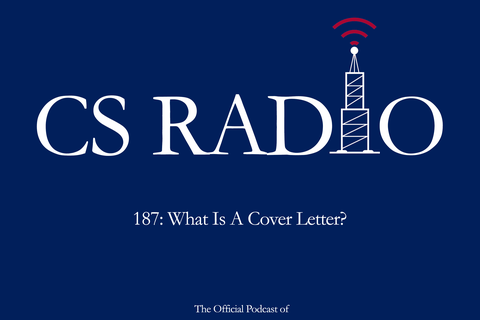Effective Cover Letters
A cover letter quickly summarizes 1) why you are applying to an organization or for a particular position, and 2) what skills and knowledge you bring that make you a strong candidate for that position. It’s an opportunity to create a narrative that emphasizes & demonstrates the skills you’ve used or are developing.
Cover letters are often viewed as a demonstration of your writing abilities, so make certain that it is free of spelling mistakes, grammar issues, and typos.

Format
Do:
- Tailor your cover letter to the specific organization & role. Generic form cover letters are easy to spot and can indicate a lack of interest.
- Use a standard size font (11 to 12 point)
- Use standard margins (1 to .65)
- Stay on 1 page (for non-academic position applications).
- Use the same header (with your name & contact information) as used on your resume.
- Include the recruiter or hiring manager’s name when possible – it’s a fast way to show you’ve done your research before applying for the position.
- If it’s unclear, you can say “Dear Name & Hiring Committee” or just “Dear Hiring Committee”.
Don’t:
- Write more than 1 page
- Write “My name is…”
- Address it with “To Whom It May Concern”
How to Address the Letter:
Your Name & Contact Info (tip: use the same format as your resume)
Today’s Date
Hiring Manager/Recruiter’s Name
Title / Organization
Dear ______:

Content + Structure
Opening Paragraph: Briefly introduce why you are applying to this organization / for this role specifically. What about them or this opportunity specifically made you excited to apply? This shows that 1) this is not a generic form letter, and 2) you did a little extra research & are familiar with the organization & their work. It is also helpful to include an overall summary of the key skills, knowledge areas, or experiences that you are bring to this role right here in the first paragraph.
Middle paragraph(s): Use specific stories, examples, or anecdotes from your background to show the kinds of relevant and/or transferable skills the employer is seeking. It’s always more effective and persuasive if you can demonstrate skills in the context in which you’ve used them; how have your experiences from your resume honed these particular skills? Are there stories or examples that would show times you’ve used or developed specific skills?
Remember, they also have your resume, so your cover letter doesn’t need to include all your experiences. Try to avoid restating what’s already in your resume. Rather than saying, “I can make a uniquely valuable contribution to your organization,” give the employer enough relevant, targeted information to allow the reader to reach that conclusion independently.
Be specific and tell stories that have a touch of drama: “When I was working as the president of X student group, one of the challenges that we faced was XYZ“. Then describe how you used your skills to overcome it: “Building relationships with administrators on campus allowed us to create X event or enabled us to take on Y initiative“. You can also reflect on how this is relevant for the reader: “I really enjoyed being placed in a position where I had to reach out to contact and bring them all together by creating a shared vision for everyone to buy into. I would be excited to bring this combination of strong marketing skills and relationship building to the role of Advertising Associate“.
Closing Paragraph: Explain why the position and the particular organization is attractive to you. Provide an authentic reason why you are exited about bring your skills to the role. Speaking with former or current employees at the organization as part of your networking can also help in this regards. You can end by thanking them for their consideration or stating that you look forward to hearing from them.

Elements of a Strong Cover Letter
- Tailor your cover letter. Employers can tell when they receive a generic cover letter. The fastest way to stand out is to be specific to them and to you. What skills or qualifications are they looking for? What related or transferable skills & experiences could you highlight from your background?
- Show the reader your skills in context. Avoid simply listing your skills (i.e. “I have strong skills in communication, collaboration, and teamwork.”) or stating your qualifications (i.e. “I am an innovative thinker.”) Instead, demonstrate that you are those things by talking about accomplishments and experiences that show it. Can you use a brief story or example that would show times you’ve used or developed those skills?
- Go beyond restating your resume. It’s better to go in depth on two or three experiences than just restating what’s already on your resume. How have your experiences from your resume honed skills that are related to what you’re applying for?
- Focus on why you’re a strong candidate. Don’t exclusively focus on why this opportunity would be a good fit for your development or career. Instead, take some of the space where you’re talking about your interest and focus it on your aptitude. How do some of your experiences demonstrate the kind of skills they’re looking for?
- Strike the right tone. Avoid saying “I’m the perfect candidate” or “I’m the best person for this role” or words like unparalleled/overjoyed – it can easily come across too strong or even as arrogant. It’s also good to avoid the word ‘passion/passionate’, which can easily be overused and come across as disingenuous in cover letters. Instead, show that you’re a strong candidate, or excellent candidate, or that you’d be excited to bring (or further hone) your skills & experience to this opportunity.

Questions to Ask Yourself
Ask yourself 2 questions:
Why them?
- This may require you to do some background research on the employer’s website, or else talk to someone you know (or don’t yet know) who already works there. Briefly explain why you want to work at that particular organization and/or doing that particular job.
Why you?
- This is the majority of a cover letter. Go through the job/internship description and pay attention to any requirements and skills the employer is looking for. Pick out a couple of the most important skills that the employer is looking for. You want your cover letter to illustrate that you have these skills and show examples of when you’ve used them effectively (whether that was through academics, extracurriculars, jobs, internships, etc.). For many jobs/internships, you may want to focus on transferable skills or skills that you used in a different context to the one you’re applying for.

FAQ
Do I need to write a fresh cover letter from scratch for every opportunity?
A good cover letter is specific to the opportunity and to your background, however you can always recycle or reuse sections from previous cover letters, particularly for jobs with similar skills or qualifications.
Do I need experience to apply for an internship?
No – for most internships, employers know you won’t have direct, professional experience and expect that they will teach & train you. Depending on the field, some may expect some level of technical knowledge or proficiency. But you can still pay attention to the kinds of soft skills & broader qualifications they’re looking for and highlight transferable skills from academics, extracurriculars, etc. and create a narrative for how those kinds of skills translate into a different context.
How do I know if I’m qualified?
Unless you’re applying for a job with the federal government, a job description is always more of an employer’s wishlist than a ‘you must check every box’. If you meet most of the qualifications for a role, don’t self-select out of applying for an opportunity you’re interested in!
If I’ve spoken to someone at the organization, should I mention their name in my cover letter?
When you include someone’s name in a cover letter, you always want to add context. What about that interaction is relevant? What did you learn about the role or company that made you want to apply?
What if I don’t have direct experience in the field I’m applying to?
Think about what kinds of transferable skills or experiences you have in your background, even if they’re in a different context or environment. Problem solving, communication, analysis/research, and more are all soft skills that apply across a number of fields. It’s also always a good idea to start talking to people who are working in a field you’re interested in applying to. See our Make Connections & Network community for more resources.









